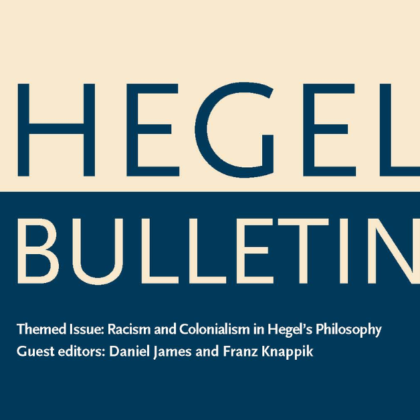An Interview with Religious Studies Editor Yujin Nagasawa
Tell us about Religious Studies. When was the journal launched, and what is its scope?
Religious Studies is a peer-reviewed international journal devoted to the philosophy of religion, engaging with both classical and contemporary debates across a wide range of religious traditions. The journal was launched in 1965 and has been published by Cambridge University Press ever since. This year marks its 60th anniversary. Since its founding, Religious Studies has published work by many of the most distinguished scholars in the field. Its archive offers a rich record of the development of the philosophy of religion from the mid-20th century to the present, reflecting the evolving questions, methods, and perspectives that have shaped the discipline.
Why is the journal titled Religious Studies if it focuses on philosophy of religion?
That is a question I am asked quite often! When the journal was founded, the first editor—H. D. Lewis, a Welsh philosopher of religion at King’s College London—envisioned a publication focused primarily on the philosophy of religion, while occasionally including papers on relevant sociological, psychological, or anthropological topics. Over time, the journal’s focus became more clearly defined, and today we explicitly publish work only in the philosophy of religion, although we welcome interdisciplinary perspectives. That is why the journal now carries the subtitle An International Journal for the Philosophy of Religion.
What makes Religious Studies unique?
Since its inception, the journal has published work reflecting a broad range of topics, methods, and religious traditions. We are committed to providing an open platform for all philosophers of religion, regardless of their approaches or backgrounds. In addition to engaging well-established debates, we aim to highlight underrepresented religious traditions and support both intradisciplinary and interdisciplinary work that connects philosophy of religion with other areas of philosophy and academic inquiry. Recent special issues have focused on topics such as Afro-Brazilian religious traditions and conceptions of the divine across Christian, Hindu, Islamic, and Jewish traditions. Forthcoming special issues will explore themes in experimental philosophy of religion and the intersection between philosophy of science and philosophical theology.
What is new about the journal, and how do you see its future?
As editor, I am committed to maintaining Religious Studies as a forward-looking journal. One of the most exciting developments is that, beginning August 12, 2025, all research articles accepted for publication will be made open access under a Creative Commons license—freely available to readers around the world. This transition has been in the works for several years, and we are thrilled to implement it for our 60th anniversary. This move will help authors reach a broader audience and ensure global access to high-quality research, particularly benefiting students, independent scholars, and academics at underfunded institutions.
We have also launched several new initiatives, including an interview series with leading philosophers of religion that will highlight major intellectual contributions and offer career insights for early-career scholars. In addition, we have introduced themed discussions—collections of short essays engaging with timely and emerging questions in the philosophy of religion.
While publishing high-quality research articles remains our core mission, we are also enthusiastic about experimenting with new formats that, while not always conventional, offer meaningful value to our readers.
Do you have any advice for those considering submitting to Religious Studies?
Our goal is to publish cutting-edge work in the philosophy of religion that meets the highest scholarly standards. While we receive a large number of submissions each year and must be highly selective, we welcome submissions from all scholars, regardless of career stage or philosophical orientation. We strive to process submissions efficiently and in a timely manner, recognizing how important this is for all authors—particularly early-career scholars working to advance their academic careers. We especially value papers that engage with significant philosophical questions and are marked by originality, clarity, and argumentative rigor.
The following excerpt from the editorial in our inaugural issue, published in 1965, still captures the ethos of the journal today: “Those who have important things to say at some length will be encouraged to do so. But the journal will have no room for the exploitation of cloudy metaphor or any other devices for the provision of needlessly elaborate ways of saying things which could be put simply and briefly. No point of view or attitude will be excluded provided the highest standards are maintained in presenting them.”
Is there anything else you would like to add?
I would like to express my sincere gratitude to our editorial board members and anonymous reviewers. Their dedication and expertise are essential to identifying the strongest submissions and helping refine them for publication. They are the unsung heroes of academic publishing, and the journal could not function without their generous contributions.
I am also deeply grateful to Tasia Scrutton and Simon Hewitt, who have served as outstanding book review editors. Their thoughtfulness, professionalism, and efficiency have greatly enriched the journal.
Finally, I would like to thank the authors who choose Religious Studies as the venue for their work. Selecting where to publish valuable research is a significant decision, and we strive to provide a platform that meets—and hopefully exceeds—their expectations. We are always excited to receive new submissions that engage with compelling questions and bring fresh perspectives to the field.
We look forward to extending the journal’s legacy by supporting innovative and theoretically significant conversations that define the philosophy of religion today.





